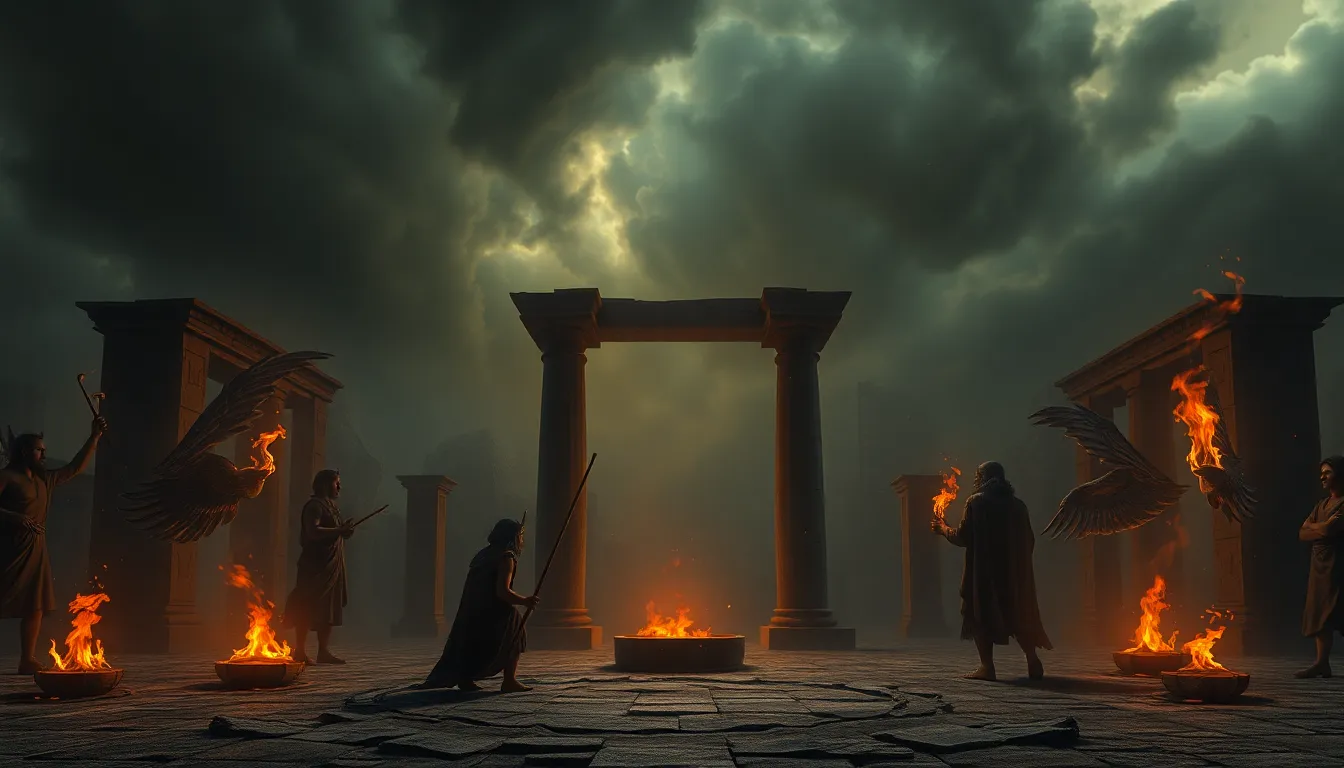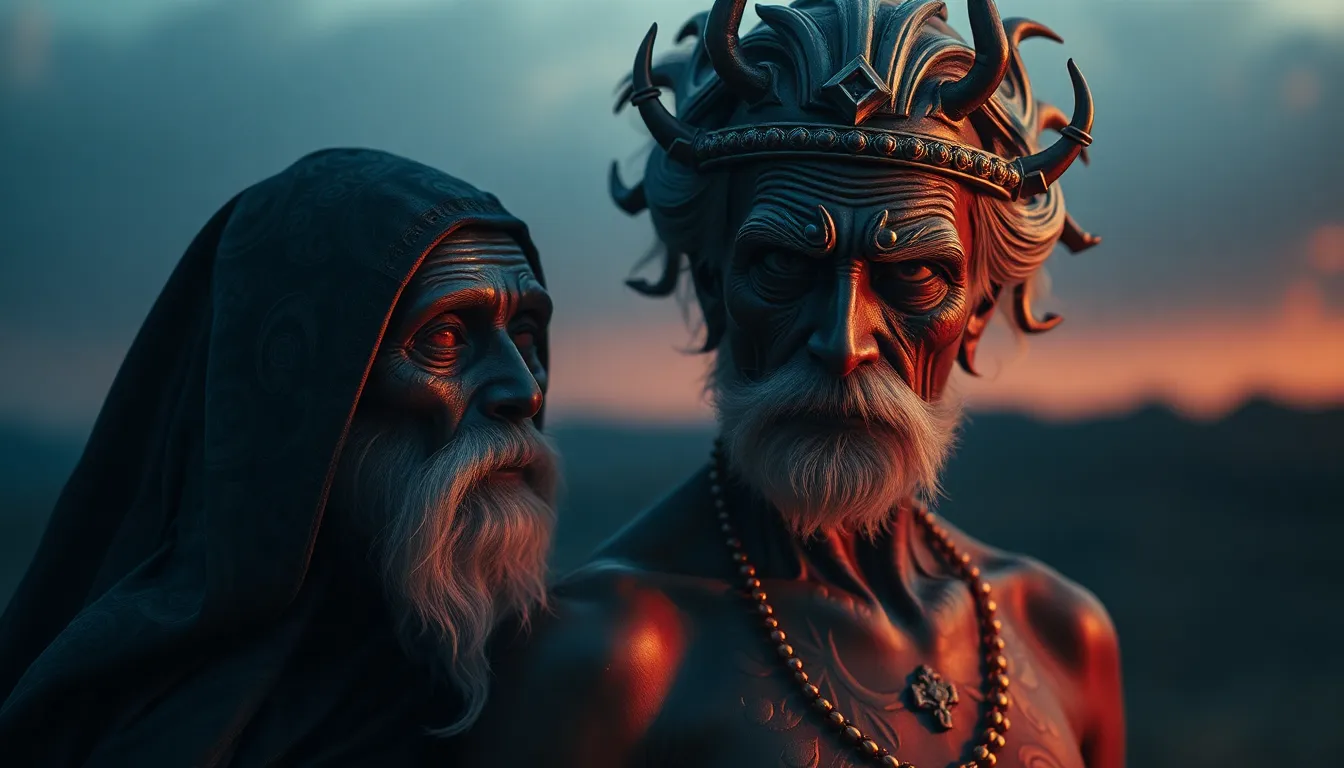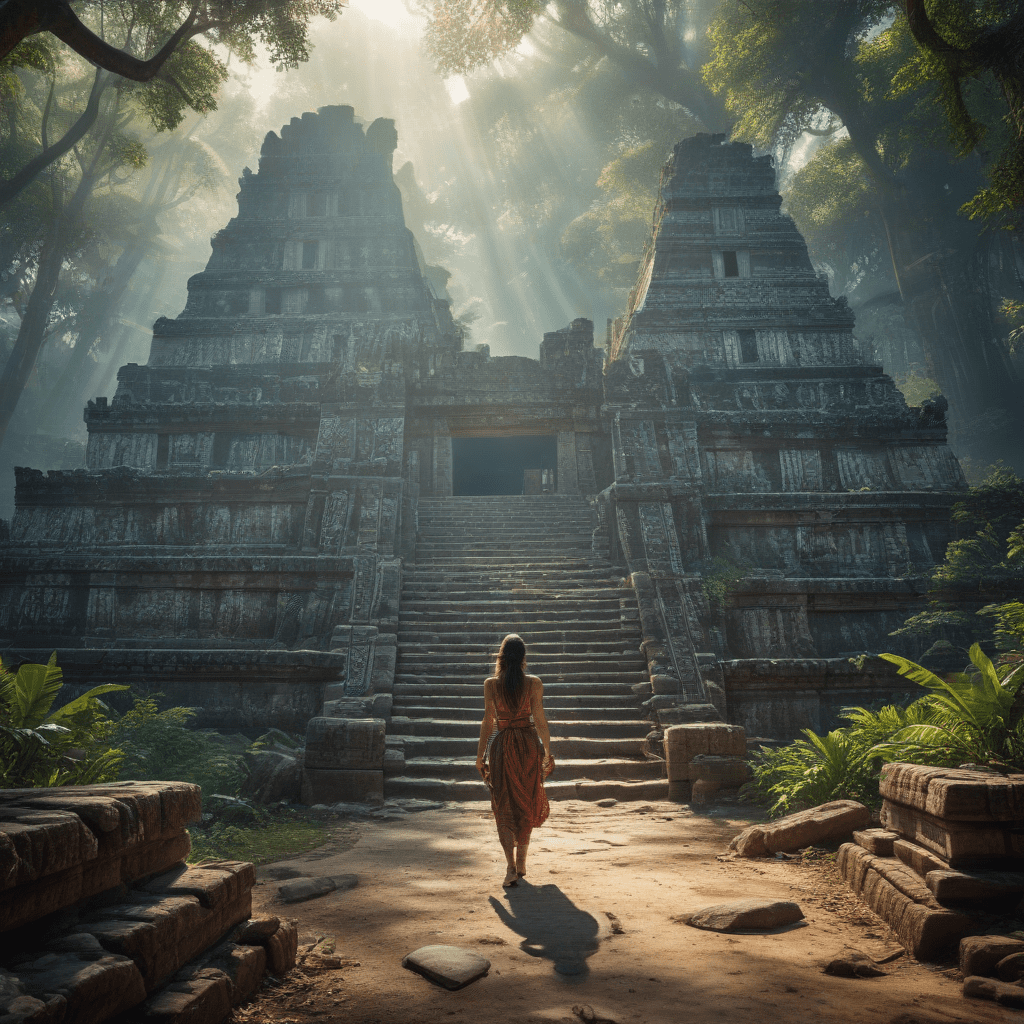The Cult of the Ancient Deities: Rituals That Shaped Society
I. Introduction
Ancient deities have long held a significant place in human history, serving as embodiments of natural forces, human traits, and societal ideals. These deities were central to the belief systems of early civilizations, providing not just explanations for the mysteries of life but also moral guidelines for behavior.
The concept of cults in ancient societies encompasses the practices, rituals, and communal gatherings centered around these deities. Cults were often marked by their unique rituals, which varied by region and culture, reflecting local customs and societal needs. This article aims to explore the intricate rituals associated with ancient deities and their profound impacts on the development of societies.
II. Historical Context of Ancient Deities
The origins of deities can be traced back to early civilizations where the unpredictable nature of the environment necessitated explanations and appeasements. Ancient people often attributed natural phenomena, such as storms or harvests, to the actions of gods. Over centuries, these beliefs evolved, resulting in complex pantheons that reflected the values and priorities of their cultures.
As civilizations expanded, so too did their belief systems. The evolution of mythology across different cultures can be seen in the similarities and differences in the stories of gods and goddesses. Mythology played a crucial role in shaping societal norms, with tales often carrying moral lessons that reinforced cultural values.
III. Major Ancient Deities and Their Cults
Some of the most prominent deities include:
- Zeus: The chief deity in Greek mythology, representing authority, law, and order.
- Osiris: An Egyptian god associated with the afterlife, resurrection, and agriculture.
- Vishnu: A major god in Hinduism, symbolizing preservation and protection.
Each of these deities had dedicated cults with specific rituals and practices. For instance, worship of Osiris included elaborate burial rites that underscored the importance of the afterlife in Egyptian culture. Regional variations in worship often influenced local governance, as rulers would invoke the favor of deities to legitimize their power and authority.
IV. Rituals in Worship: Practices and Beliefs
Rituals served as a medium for believers to connect with their deities. Common types of rituals included:
- Sacrifices: Offerings of food, animals, or even humans made to appease the gods.
- Festivals: Public celebrations featuring music, dance, and communal feasting in honor of a deity.
- Rites of Passage: Ceremonies marking significant life events, such as birth, marriage, and death.
The symbolism behind these rituals varied, but they often represented themes of renewal, gratitude, and the cyclical nature of life. Priests and priestesses played vital roles in conducting these rituals, serving as intermediaries between the divine and the human realms. Their authority was often derived from their perceived ability to communicate with the gods.
V. Societal Impact of Rituals on Daily Life
Rituals were integral to community life, reinforcing social bonds and shared identities. They provided opportunities for collective participation, fostering a sense of belonging among community members. The societal impact of rituals included:
- Reinforced Community Bonds: Rituals often required collaboration and participation, promoting unity within the community.
- Influence on Social Hierarchies: Rituals could reinforce class structures, as certain rites were exclusive to the elite or specific families.
- Relationship with Agricultural Cycles: Many rituals were timed to the agricultural calendar, ensuring successful crops and food security.
VI. The Role of Temples and Sacred Spaces
Temples served as the physical manifestations of the connection between the divine and the earthly. They were architecturally significant, often built with great care and resources. Temples acted as:
- Centers of Worship: Places where individuals gathered to perform rituals and offer sacrifices.
- Economic Hubs: Temples often controlled land and resources, contributing to the local economy.
- Political Centers: Many temples had close ties to governance, influencing political decisions and laws.
Pilgrimages to sacred sites also fostered trade and cultural exchange, as people traveled vast distances to pay homage to their deities.
VII. The Intersection of Religion and Politics
The relationship between religion and politics was often symbiotic. Theocratic governance, where religious leaders also held political power, was common in ancient societies. Key points include:
- Divine Right of Kings: Many rulers claimed that their authority was granted by the gods, legitimizing their rule.
- Rituals as Tools for Control: State-sponsored rituals were used to promote loyalty and obedience among the populace.
Case studies from Egypt, Mesopotamia, and Mesoamerica illustrate how rulers utilized religious practices to maintain power and influence.
VIII. Decline of Ancient Deities and Rituals
The decline of ancient religions can be attributed to several factors:
- Rise of Monotheistic Religions: The spread of religions such as Christianity and Islam led to the diminishing influence of polytheistic practices.
- Cultural Integration: The conquests and expansions of empires often resulted in the blending or erasure of local deities.
Despite this decline, many ancient rituals have been preserved or reinterpreted in modern spiritual movements, showcasing their lasting impact.
IX. Legacy of Ancient Rituals in Contemporary Society
The influence of ancient rituals persists in contemporary culture:
- Modern Religious Practices: Many contemporary religions incorporate ancient rituals and festivals into their observances.
- Revival Movements: There has been a resurgence of interest in ancient practices, with various groups seeking to reconnect with their spiritual heritage.
- Academic Insights: Archaeology and anthropology continue to shed light on the significance of ancient rituals, enhancing our understanding of their legacy.
X. Conclusion
In summary, ancient deities and their associated rituals played a pivotal role in shaping societies. They provided frameworks for understanding the world, reinforced community bonds, and influenced governance and social structures. Reflecting on the legacy of these ancient practices allows us to appreciate the complexity of human belief systems and their enduring impact on contemporary society.




